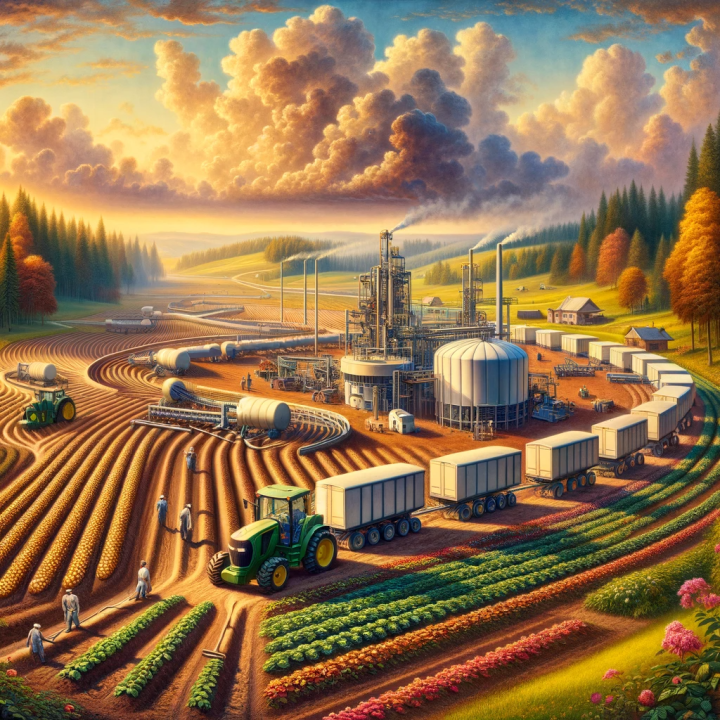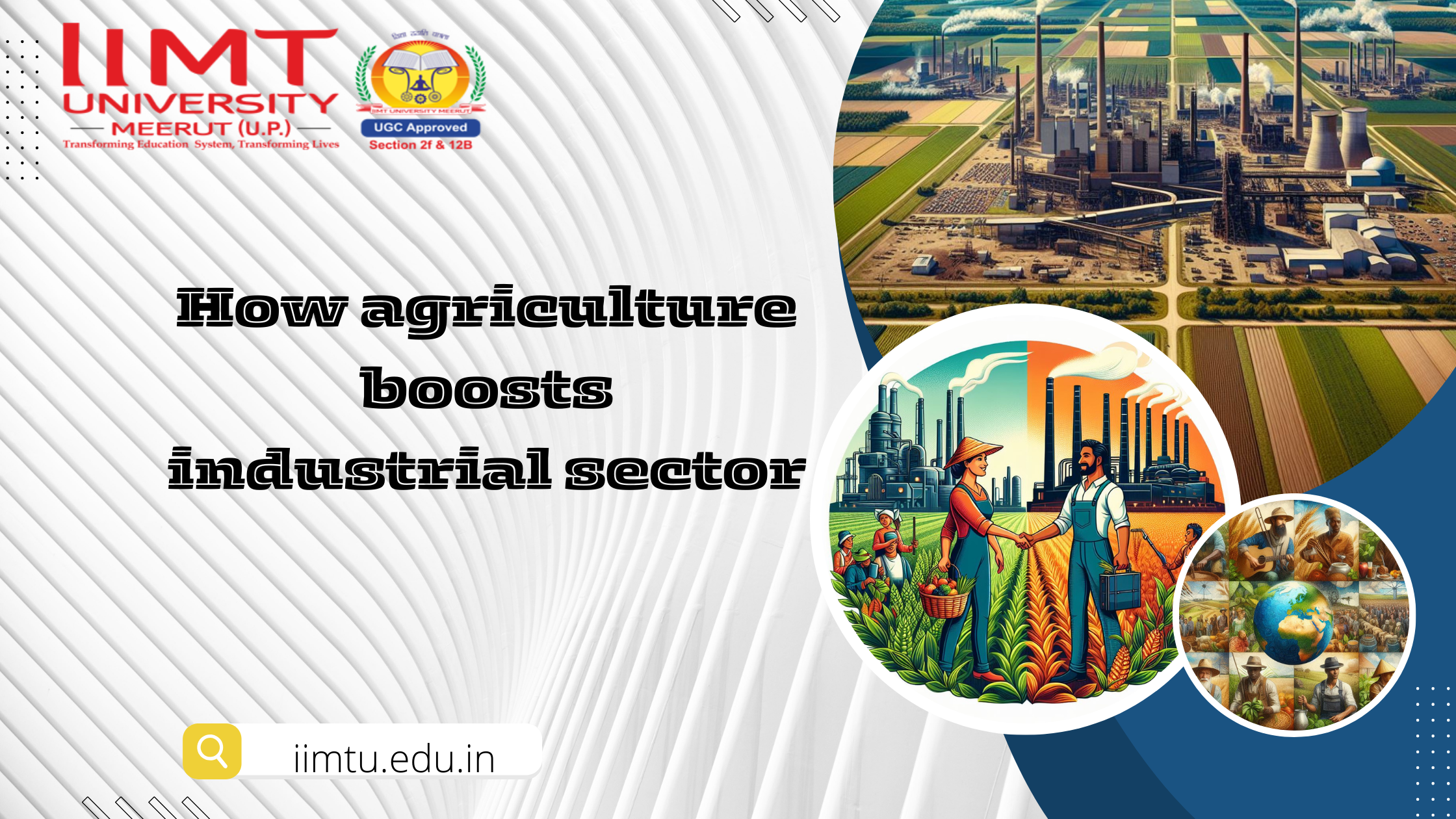How Agriculture Boosts the Industrial Sector: Driving Economic Growth and Innovation
Introduction to industrial sector
 In the intricate web of global industries, agriculture stands out as a fundamental pillar that fuels economic growth, innovation, and sustainability across various sectors. The symbiotic relationship between agriculture and industry is evident in the profound impact of agricultural activities on industrial development. Let’s delve into how agriculture boosts the industrial sector .And drives forward economic prosperity and innovation.
In the intricate web of global industries, agriculture stands out as a fundamental pillar that fuels economic growth, innovation, and sustainability across various sectors. The symbiotic relationship between agriculture and industry is evident in the profound impact of agricultural activities on industrial development. Let’s delve into how agriculture boosts the industrial sector .And drives forward economic prosperity and innovation.
Raw Material Supply and Agro-based Industries
Agriculture serves as the primary source of raw materials for numerous agro-based industries .And ranging from food processing to textile manufacturing, bioenergy production, and pharmaceuticals. The bounty of crops cultivated by farmers—such as grains, fruits, vegetables, oilseeds, and fibers—form the foundational inputs for these industries. For instance, wheat and corn are processed into flour and starch for food production.And while cotton fibers are spun into textiles and apparel. This supply chain integration highlights agriculture’s pivotal role in meeting the raw material demands of industrial processes.
Value Addition and Food Processing
One of the key ways agriculture boosts the industrial sector is through value addition and food processing. Agricultural commodities undergo transformation into value-added products through processing, packaging, and preservation techniques. This value addition enhances marketability, prolongs shelf life and creates a diverse range of consumer goods. From canned fruits and frozen vegetables to beverages, oils. And spices, food processing industries leverage agricultural produce to meet consumer demand and expand market reach.
Technological Innovations and Research
Agricultural research and technological innovations significantly contribute to industrial development. Research in crop genetics .And precision agriculture leads to advancements that benefit industrial sectors beyond farming. For instance, genetic engineering techniques improve crop yields and resilience. while bio-based technologies derived from agricultural research find applications in medicine, biotechnology, and industrial processes. These innovations drive efficiency, sustainability, and competitiveness in the industrial landscape.
Job Creation and Economic Resilience
Agriculture generates substantial employment opportunities directly and indirectly in the industrial sector. Agro-industries, food processing units. and value-added enterprises create jobs in manufacturing, distribution, logistics, marketing, and research. This employment ecosystem fosters economic resilience, reduces rural-urban migration and supports livelihoods in agricultural communities. Additionally, agriculture-based industries contribute to regional economic growth and diversification.
Sustainable Practices and Environmental Stewardship
The integration of sustainable agricultural practices promotes environmental stewardship within the industrial sector. Sustainable farming methods, such as organic farming, conservation tillage and integrated pest management, minimize environmental impact and conserve natural resources. By adopting eco-friendly practices, industries reduce their ecological footprint, mitigate climate change effects, and align with sustainable development goals.
Supply Chain Integration and Circular Economy
Agriculture strengthens supply chain integration by linking farmers, processors, manufacturers, and consumers. Efficient supply chains ensure timely availability of raw materials and finished products, supporting industrial growth and market responsiveness. Moreover, agriculture contributes to the circular economy by utilizing waste products for industrial purposes, such as converting agricultural residues into biofuels, biogas, and bio-based materials.
In conclusion, agriculture plays a pivotal role in boosting the industrial sector by supplying raw materials, fostering value addition, driving innovation, creating employment, promoting sustainability. and enhancing supply chain efficiency. The synergy between agriculture and industry underscores the interconnectedness of economic development. and underscores the critical importance of sustainable practices in shaping a prosperous future.
Frequently Asked Questions (FAQs)
Here are common questions and answers related to the impact of agriculture on industrial development:
- How does agriculture contribute to job creation in the industrial sector?
Agriculture generates employment opportunities in agro-industries, food processing, manufacturing, distribution. and research, supporting economic growth and livelihoods.
- What role does agricultural research play in driving industrial innovation?
Agricultural research leads to technological advancements, biotechnological applications, and innovations that benefit industrial sectors beyond farming.
- What are examples of agro-based industries that rely on agricultural products?
Agro-based industries include food processing, textile manufacturing, bioenergy production, pharmaceuticals. and animal feed production, among others.
- How does agriculture contribute to value addition and market diversification?
Agriculture supports value addition through food processing, packaging, and preservation, creating a diverse range of consumer goods and expanding market opportunities.
- What are the environmental benefits of integrating sustainable agriculture into industrial processes?
Sustainable agriculture practices promote environmental stewardship by reducing chemical inputs .And conserving natural resources, and mitigating climate change effects within industrial operations.
Understanding the multifaceted contributions of agriculture to industrial development is essential for fostering innovation, sustainability, and inclusive economic growth across industries.
To know more – Visit our Website
For admission related queries – Click here or call us @ 9997089170
Author :- Davesh

